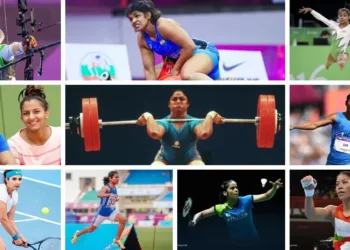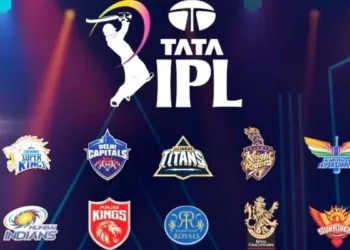What was meant to be a celebratory finale episode for “The Great Indian Kapil Show” has erupted into a major legal storm that threatens to overshadow the show’s third season conclusion. Producer Firoz Nadiadwala has slapped Netflix and the comedy show’s makers with a staggering ₹25 crore legal notice, alleging unauthorized use of the iconic Baburao Ganpatrao Apte character from the cult classic Hera Pheri franchise.
The controversy centers around comedian Kiku Sharda’s portrayal of Baburao during the show’s finale episode featuring Akshay Kumar, which was intended to promote his latest film “Jolly LLB 3.” However, what the show’s creators likely considered harmless comedy has now landed them in serious legal trouble with implications that could reshape how Indian entertainment handles character rights and intellectual property.
Table of Contents
The Baburao Character Controversy Explained
The legal battle erupted when Kiku Sharda donned the distinctive look and mannerisms of Baburao Ganpatrao Apte, the beloved character originally brought to life by veteran actor Paresh Rawal in the 2000 blockbuster “Hera Pheri” and its 2006 sequel “Phir Hera Pheri.”

The character has achieved cult status in Indian cinema, with his distinctive dialogue delivery and comic timing becoming deeply embedded in popular culture.
| Legal Notice Details and Demands |
|---|
| Amount Claimed: ₹25 crore in damages |
| Response Deadline: 24 hours for apology |
| Payment Deadline: 2 days for compensation |
| Content Removal: Immediate from all platforms |
| Future Undertaking: Written assurance against reuse |
According to Firoz Nadiadwala’s legal team, the character Baburao is not merely a fictional creation but a registered trademark owned by the Nadiadwala family. The producer has made it clear that any commercial use of this character without explicit permission constitutes a serious violation of both copyright and trademark laws.
Firoz Nadiadwala’s Passionate Defense of Creative Legacy
In a strongly worded statement that reveals the emotional investment behind the legal action, Firoz Nadiadwala articulated his position with remarkable clarity and passion. “Baburao is not just a character, but the soul of Hera Pheri,” he declared. “This legacy was built with our sweat, vision, and creativity. Paresh Rawal ji nurtured the role and put his heart and soul into it. No one has the right to misuse it for commercial gain.”

The producer’s stance goes beyond mere commercial considerations, touching on deeper issues of cultural preservation and creative integrity. “Culture is not for exploitation; it is for preservation,” Nadiadwala emphasized, positioning this legal battle as part of a broader fight to protect intellectual property rights in the Indian entertainment industry.
Nadiadwala’s Key Arguments:
- Baburao represents the creative essence of the Hera Pheri franchise
- The character was developed through years of creative investment and vision
- Paresh Rawal’s iconic performance deserves legal protection
- Commercial exploitation without permission undermines creative rights
- Cultural preservation requires legal enforcement of intellectual property
Complex Legal Framework Behind the Lawsuit
The legal notice filed by Nadiadwala’s team is comprehensive, citing multiple sections of Indian intellectual property law to build a robust case against Netflix and The Kapil Sharma Show’s production house.
Primary Legal Violations Alleged:
- Section 51 of the Copyright Act, 1957: Copyright infringement for unauthorized reproduction
- Section 14 of the Copyright Act, 1957: Violation of exclusive rights over public communication
- Section 29 of the Trademarks Act: Trademark infringement of registered character name
- Commercial exploitation: Unauthorized use for profit without permission
The legal team, led by advocate Sana Raees Khan (former Bigg Boss 17 contestant), has been particularly vocal about the seriousness of the alleged violations. “The unauthorized use of my client’s iconic character is not just infringement; it is blatant theft for commercial gain,” Khan stated. “The law will not allow the dilution of rights that have been lawfully earned and zealously protected.”
The Kapil Sharma Show’s Finale Episode Controversy
The timing of this legal controversy adds another layer of complexity to the situation. The disputed content appeared in what was promoted as the grand finale episode of The Great Indian Kapil Show’s third season, featuring Bollywood superstar Akshay Kumar as the special guest.
Episode Context and Impact:
- Guest Star: Akshay Kumar (promoting Jolly LLB 3)
- Character Portrayal: Kiku Sharda as Baburao Ganpatrao Apte
- Episode Status: Finale episode of Season 3
- Platform: Netflix streaming service
- Viewership Impact: High visibility due to finale status and Kumar’s star power
The irony of the situation is particularly striking, given that Akshay Kumar himself was one of the original stars of the Hera Pheri franchise, playing the character Raju alongside Paresh Rawal’s Baburao and Suniel Shetty’s Shyam. This connection makes the legal controversy even more complex, as Kumar’s presence on the show could be seen as lending legitimacy to the character portrayal.
Netflix’s Position and Industry Implications
As one of the world’s leading streaming platforms, Netflix finds itself at the center of a legal battle that could have far-reaching implications for content creation and character rights in India. The platform’s response to Nadiadwala’s demands will likely set important precedents for how international streaming services handle local intellectual property concerns.

Potential Impact on Streaming Industry:
- Content Vetting: Enhanced scrutiny of character-based comedy sketches
- Legal Compliance: Stricter protocols for using existing fictional characters
- Creator Rights: Greater awareness of trademark and copyright protections
- Risk Management: More conservative approaches to parody and tribute content
The controversy highlights the evolving landscape of entertainment law in India, where traditional broadcast regulations are being adapted to address the unique challenges posed by digital streaming platforms and their global reach.
Previous Incidents and Industry Context
This lawsuit represents part of a broader trend in the Indian entertainment industry, where celebrities and creators are becoming increasingly protective of their personality rights and intellectual property. Recent years have seen several high-profile cases of legal notices being sent over unauthorized use of celebrity personas, dialogue, and character representations.
The legal action also comes at a time when the Hera Pheri franchise is experiencing renewed attention, with Hera Pheri 3 confirmed to begin shooting in early 2026. This timing suggests that Nadiadwala’s aggressive protection of the Baburao character may be partly motivated by upcoming commercial opportunities and the need to maintain clear ownership rights.
The Demands and Consequences
Nadiadwala’s legal notice presents Netflix and The Kapil Sharma Show’s makers with a series of specific demands that must be met within extremely tight deadlines:
| Legal Demands Timeline |
|---|
| Immediate Action: Remove all Baburao content from Netflix, social media, and third-party channels |
| Within 24 Hours: Issue public apology and written undertaking for future compliance |
| Within 2 Days: Pay ₹25 crore compensation |
| Upon Non-Compliance: Face civil and criminal legal proceedings |
The financial demand of ₹25 crore represents one of the largest intellectual property claims in recent Indian entertainment industry history, signaling the seriousness with which Nadiadwala views this alleged infringement.
Broader Questions About Comedy and Copyright
This controversy raises important questions about the boundaries between comedy, parody, and copyright infringement in the digital age. While comedy shows have traditionally enjoyed some protection under fair use provisions, the commercial nature of streaming platforms and the registered trademark status of the Baburao character complicate these traditional defenses.
Key Legal Questions:
- Where does parody end and infringement begin?
- How do trademark rights apply to fictional characters in comedy contexts?
- What protections do streaming platforms have for user-generated or show-created content?
- How should courts balance creative freedom with intellectual property rights?

The outcome of this case could establish important precedents for how Indian courts view character rights, particularly in the context of comedy shows and digital streaming platforms.
FAQs
Why is The Kapil Sharma Show being sued by Firoz Nadiadwala?
Firoz Nadiadwala has filed a ₹25 crore lawsuit against The Kapil Sharma Show and Netflix for unauthorized use of the Baburao character from Hera Pheri, which he claims is a registered trademark owned by his family.
What specific legal violations are alleged in the lawsuit?
The legal notice cites violations under Section 51 and 14 of the Copyright Act, 1957, and Section 29 of the Trademarks Act, alleging copyright infringement, trademark violation, and unauthorized commercial exploitation.
What are Firoz Nadiadwala’s specific demands in the legal notice?
Nadiadwala demands immediate removal of all Baburao content from platforms, a public apology within 24 hours, written assurance against future use, and ₹25 crore compensation within 2 days, threatening civil and criminal proceedings upon non-compliance.
Which episode of The Kapil Sharma Show triggered this controversy?
The controversy arose from the finale episode of Season 3 featuring Akshay Kumar as a guest, where comedian Kiku Sharda portrayed the Baburao character during Kumar’s appearance to promote “Jolly LLB 3.”
How might this lawsuit impact the streaming industry and comedy shows?
This case could set important precedents for intellectual property rights in streaming content, potentially leading to stricter vetting processes for character-based sketches and greater awareness of trademark protections in comedy programming.








